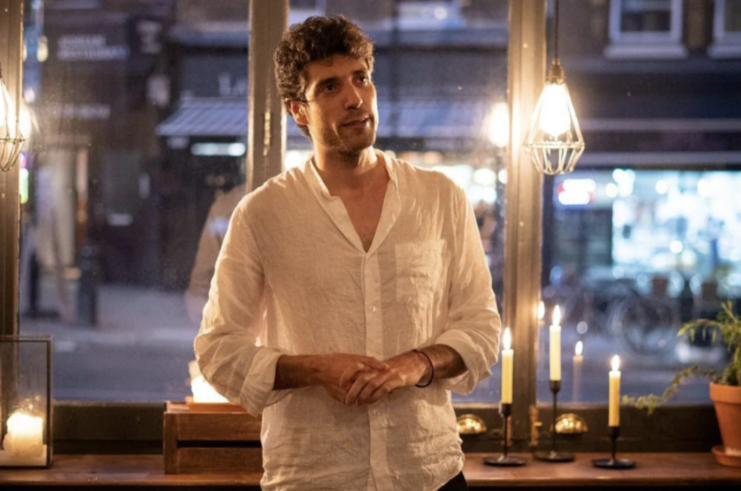Fidelio Cafe’s Raffaello Morales on the role of music in the City

I caught up with Raffaello Morales, conductor and founder of Fidelio Cafe and founder and music director of Fidelio Orchestra, a London-based ensemble which brings together students, professionals and semi-professional players. We talked about the role of music in the City of London, how businesses can support the arts, and the importance of forging new pathways for the younger generation of creatives.
What was your vision for Fidelio Orchestra Cafe when you founded it?
My vision was to create a musical organisation which brings audience and performers together in a community that takes down the usual barriers that a concert hall can present. I think the concert hall is not for everybody – and if we want to make an effort to make music for everybody, then we need to find ways of communicating it and bringing music to the people rather than people to the music.
As a space and concept, it is beautifully intertwined with good food, great music in the heart of the City of London. Have you had a different audience to that of a concert hall? Do you find you are attracting a lot of city workers who might not otherwise go to a classical concert?
Before the pandemic one of the key business aspects of this project was its location; as a design & tech hub, it is full of young professionals who are both first timers to concerts and also seasoned concert goers. We are trying to develop a new audience among young professionals who can be persuaded there is a value in spending money on music. We are trying to make this a sustainable model for art in society.
Do you see the relationship between businesses and culture becoming more symbiotic through how the Fidelio project challenges the traditional approach to classical music performance and presentation?
The way the arts and music have funded themselves has always been a model heavily reliant on patronage. The Fidelio model is a way of trying to interpret what the lifestyle of the new middle class is and how to fit in with the demand of what people want to be involved with. The relationship between business and art has always been a relationship that has made the artist frustrated and the business person feel empowered, but thanks to that dynamic we have the best artistic creations of all time.
Fidelio tries to tackle the problem of whether there exists the possibility of creating a sustainable business model for music aside from patronage. We haven’t had any major funding or support so far, and the possibility of making audience and musicians solve this problem together is exciting. The relationship between business and the arts that we are forging is a more simple market mechanism where demand meets supply.
Your concerts are performed by top internationally performing artists. What do you think it is about your community that attracts the performer to play here?
One of our performers said “When I’m at the piano in your venue and I play, and I see the buses and the people walking out in front of me and I feel like what I’m doing is actually truer than reality going on outside.” The way the artists and the audience can share an artistic experience that feels truer than life that parades behind the window is a unique experience for both the performer and the audience.
One factor that has recently played in our favour and how we have managed to get such internationally renowned artists involved, is that we took a lot of risk to try and put on models that will be possible and safe. We seized the opportunity to confirm artists whose schedules were in flux.
What tangible benefits are there for city workers and companies to engage with concerts and musicians?
Individually, the experience one can get from associating musical experiences with personal life and circumstances can be incredibly moving and poignant, so for people who live a particularly stressful life this can provide a safe haven. At the company level, what we do here is all about community.
You are in a living room with friends, listening to music of the highest standard and you enjoy a social context that is all about taste. It makes you live a night out in a way that makes you feel far away from any commercial experience. You get to chat to the musicians, hear different life experiences and I think that’s unique. It’s like a public club!
What do you love most about your job?
The idea that I’m doing something for music and the continuation of music in the history of the world. This really keeps me going – it’s hard work, a real labour of love!
What change would you like to see in the Square Mile in 2021?
London is a great city for so many reasons, and it has grown in a way that makes it resemble a collection of separate villages growing independently – but all mimicking each other in a way. I would like this area of Farringdon to keep its identity and community and go back to being a vibrant community of new companies and innovation.